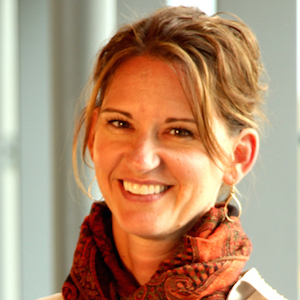Caregiving is a universal human experience. Nearly all of us will find ourselves caring for another person who is ill, cognitively or physically disabled, elderly, or frail. Also, most of us will find ourselves needing care eventually, especially if we live long lives. A third of those living past the age of 85 are likely to have dementia, a condition that is notoriously challenging for family caregivers. It is critical that dementia research focused on prevention and cure is accompanied by systems of support for caregivers who are dealing with the challenges now. As the population of elders grows and the pool of caregiver shrinks, the current system of long-term care will no longer be sustainable or affordable. We, the people most affected by these changes, have to work together to generate enough momentum to bring fresh ideas to aging and caregiving. Change can begin at the local level and make its way into the national spotlight during the 2016 election cycle.
The nonpartisan Family Caregiver Platform Project (FCPP) is designed to get key platform issues that matter to caregivers of frail elders discussed in every state. In the next year, political meetings will be held in thirty-six states to help leaders discuss priorities and create resolutions or platforms. Platforms within a state political party define issues that are important to people in that state and let voters know where the party stands.
Getting family caregiver issues on state party platforms is a grassroots movement that can be powerfully fueled by national organizations working with local volunteers. The objective of the FCPP—to get family caregiving issues included in party platforms in as many states as possible across the country—depends on volunteers and advocates who are activated by supporting organizations. Most states’ platform drafting processes begin in 2016. A few states have already held meetings and accepted testimony for platform resolution language. Thanks to the efforts of volunteers in Arizona and California, submissions for platform language supporting family caregivers were made to both political parties in these states during July and August.
There is not a uniform platform procedure common to all parties or all states. The heartfelt presentation of caregiver issues with a written resolution submission is a powerful and persuasive way in which a volunteer can contribute to the platform process. The FCPP national team has identified three primary pathways by which engaged citizens with a passion for caregiving issues can contribute to the platform drafting/adoption process:
- Submit directly at local precinct or county caucus meetings.
- Submit directly to a party committee (via platform or resolution committee meetings or on website).
- Submit proposed planks directly to a local or state-level party official, who will pass along the recommendation to the platform committee for consideration.
These processes create myriad opportunities for volunteers and advocates working with national partners to join forces in creating awareness and change. This is a true participatory opportunity for powerful caregiver advocacy between citizens who propose platform planks and state party officials who create the platform.
Relationships Matter; National Partners can be an important link. The FCPP team is a small but tactically precise team; we gather the background research, provide drafts of planks and templates for submission, identify and convene those willing to help, and then hand over the “boots-on-the-ground” operations to in-state volunteers.
Current National Partners: Altarum Institute, ARCH National Respite Coalition, Caregiver Voices United (a 501c4 allied with Caregiver Action Network), Caring Across Generations, Center for Elder Care and Advanced Illness, Community Catalyst, The Evangelical Lutheran Good Samaritan Society, Family Caregiver Alliance, and the National Alliance for Caregiving.
Join us; together we can spur a national dialogue on family caregiver needs leading up to the 2016 party platforms and elections. Sign up at http://caregivercorps.org or contact me directly at vwalker3@good-sam.com.
Victoria Walker MD, CMD is the Chief Medical and Quality Officer for the Evangelical Lutheran Good Samaritan Society, the largest non-profit provider of LTC and senior services. She began her career as a family practice physician in a small Midwestern community. After several years providing community care, she shifted to working in a psychiatric hospital, where she developed a special interest in caring for those with dementia with challenging neuropsychiatric symptoms, advanced illness care, and the medical director role. Dr. Walker is a Clinical Associate Professor in the Department of Family Medicine and Geriatrics at the University of South Dakota Sanford School of Medicine and is an APSA Congressional Health and Aging Policy Fellow. She is the National Coordinator of the Family Caregiver Platform Project.
Disclaimer: The views in guest essays are those of the authors and do not necessarily reflect the views of the LEAD Coalition.


